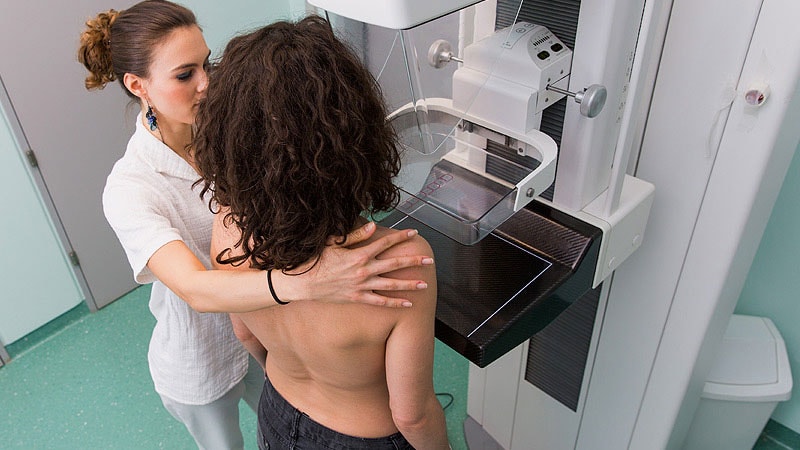Cost Barriers After Abnormal Screening Mammogram
Основные понятия
High out-of-pocket costs deter follow-up tests after abnormal mammograms.
Аннотация
The content discusses the financial barriers faced by women with abnormal screening mammograms due to high out-of-pocket costs, hindering necessary follow-up tests. Key points include:
- Federal legislation eliminated cost-sharing for initial breast cancer screening.
- Women with higher cost-sharing have fewer follow-up tests post abnormal mammograms.
- Recommendations include emphasizing the importance of follow-up testing and advocating for legislation to remove out-of-pocket costs.
- Study findings highlight disparities in diagnostic breast imaging based on cost-sharing plans.
- The impact of financial barriers on completing the screening process and health outcomes is concerning.
Настроить сводку
Переписать с помощью ИИ
Создать цитаты
Перевести источник
На другой язык
Создать интеллект-карту
из исходного контента
Перейти к источнику
www.medscape.com
'Startling' Cost Barriers After Abnormal Screening Mammogram
Статистика
Plans dominated by coinsurance had the lowest average out-of-pocket costs ($945).
Use of follow-on breast MRI was nearly 24% lower among women in plans with the highest cost-sharing.
Цитаты
"The chief clinical implication is that women with abnormal mammograms are deciding not to follow-up on diagnostic imaging because of high out-of-pocket costs." - Danny Hughes, PhD
Ключевые выводы из
by Megan Brooks в www.medscape.com 03-30-2023
https://www.medscape.com/viewarticle/990294
Дополнительные вопросы
How can healthcare policies be improved to ensure follow-up tests after abnormal mammograms are accessible to all?
To ensure that follow-up tests after abnormal mammograms are accessible to all, healthcare policies can be improved in several ways. One approach is to pass legislation at both the national and state levels that eliminates out-of-pocket costs for follow-up diagnostic breast imaging and biopsies, similar to the coverage provided for screening mammograms under the Affordable Care Act. By removing financial barriers, more women would be encouraged to undergo necessary follow-up tests, leading to earlier detection and treatment of potential breast cancer cases. Additionally, healthcare policies could consider bundling all breast cancer diagnostic testing into a single reimbursement to streamline the process and reduce financial burdens on patients.
What are the potential consequences of financial barriers on public health outcomes related to breast cancer screening?
Financial barriers related to breast cancer screening can have significant consequences on public health outcomes. When individuals face high out-of-pocket costs for follow-up tests after abnormal mammograms, they may be deterred from seeking necessary care, leading to delays in diagnosis and treatment. This can result in the progression of undetected breast cancer cases, potentially leading to poorer health outcomes and increased mortality rates. Moreover, disparities in access to follow-up tests due to financial barriers can exacerbate existing health inequities, particularly among underserved populations. Ultimately, financial barriers can hinder the effectiveness of breast cancer screening programs and contribute to negative public health outcomes.
How can the healthcare system address the financial burden on individuals needing follow-up tests post abnormal mammograms?
The healthcare system can address the financial burden on individuals needing follow-up tests post abnormal mammograms through various strategies. One approach is to advocate for the implementation of policies that eliminate out-of-pocket costs for diagnostic breast imaging and biopsies following abnormal screening mammograms. By ensuring that these essential follow-up tests are covered by insurance without additional financial burdens on patients, more individuals would be inclined to undergo recommended procedures. Additionally, healthcare providers can play a role in educating patients about the importance of follow-up testing and discussing potential financial assistance options available to them. Collaborating with policymakers, insurers, and advocacy groups to promote affordable access to follow-up tests can help alleviate the financial burden on individuals and improve health outcomes in cases of abnormal mammograms.
0
